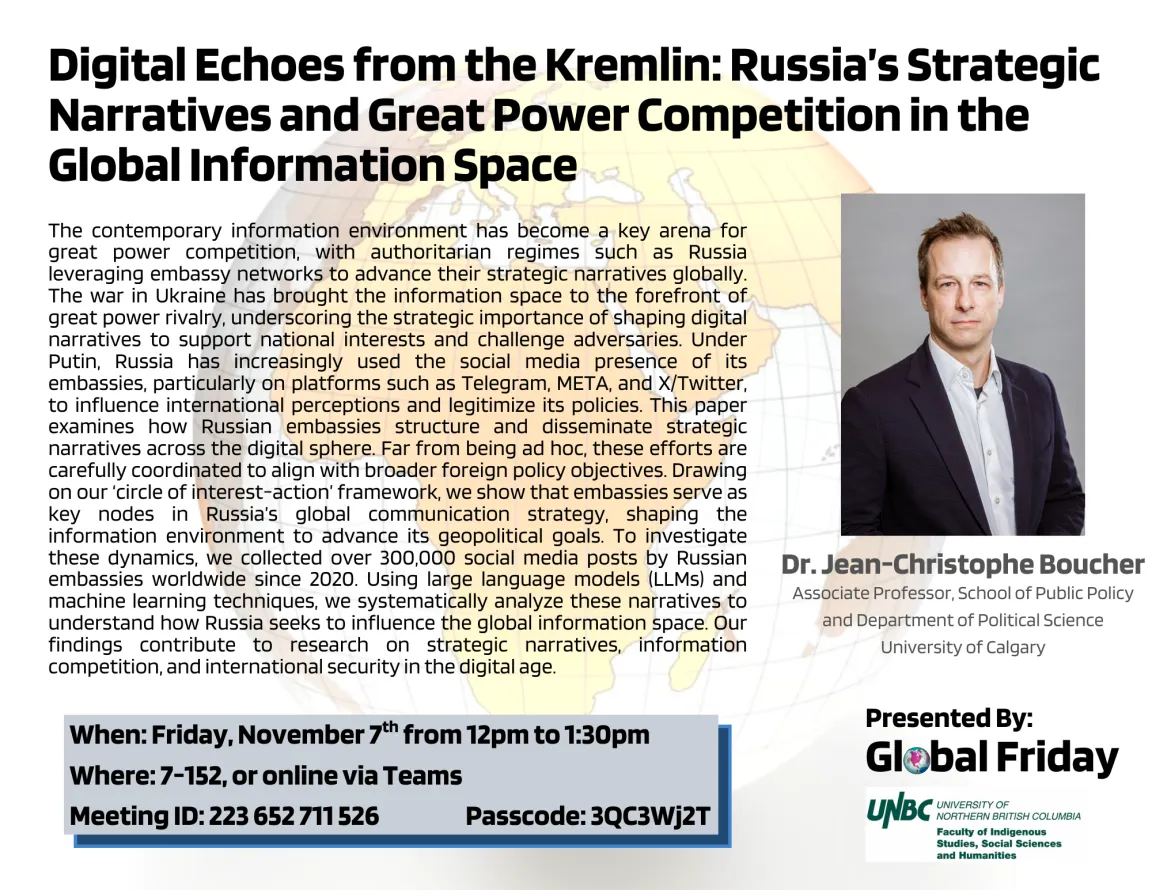Digital Echoes from the Kremlin: Russia’s Strategic Narratives and Great Power Competition in the Global Information Space

Dr. Jean-Christophe Boucher
Associate Professor, School of Public Policy and Department of Political Science
University of Calgary
Abstract: The contemporary information environment has become a key arena for great power competition, with authoritarian regimes such as Russia leveraging embassy networks to advance their strategic narratives globally. The war in Ukraine has brought the information space to the forefront of great power rivalry, underscoring the strategic importance of shaping digital narratives to support national interests and challenge adversaries. Under Putin, Russia has increasingly used the social media presence of its embassies, particularly on platforms such as Telegram, META, and X/Twitter, to influence international perceptions and legitimize its policies. This paper examines how Russian embassies structure and disseminate strategic narratives across the digital sphere. Far from being ad hoc, these efforts are carefully coordinated to align with broader foreign policy objectives. Drawing on our ‘circle of interest-action’ framework, we show that embassies serve as key nodes in Russia’s global communication strategy, shaping the information environment to advance its geopolitical goals. To investigate these dynamics, we collected over 300,000 social media posts by Russian embassies worldwide since 2020. Using large language models (LLMs) and machine learning techniques, we systematically analyze these narratives to understand how Russia seeks to influence the global information space. Our findings contribute to research on strategic narratives, information competition, and international security in the digital age.
Speaker's Bio: Jean-Christophe Boucher is an Associate Professor in the Department of Political Science at the University of Calgary and a Fulbright Scholar, specializing in civil-military relations, international security, and data science. He also serves as a Special Advisor and Deputy Director – Data Science in the Rapid Response Mechanism at Global Affairs Canada, where he focuses on detecting and analysing foreign information manipulation targeting democracies. His work bridges social sciences, computational methods, and defence policy, with a particular emphasis on how digital platforms shape political attitudes and influence operations. He co-directs the Canadian Defence and Security Network (CDSN) and leads several funded projects that apply machine learning and network analysis to the study of political communication.
Room: 7-152 or online on Teams
Teams Link: Register Here
Meeting ID: 223 652 711 526
Passcode: 3QC3Wj2T
Global Friday gratefully acknowledges funding from the Faculty of Indigenous Studies, Social Sciences and Humanities.